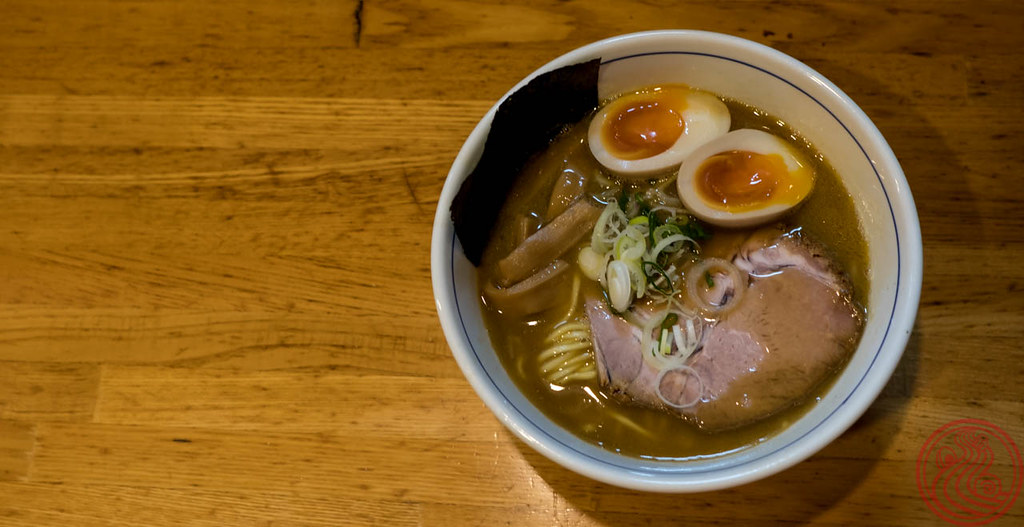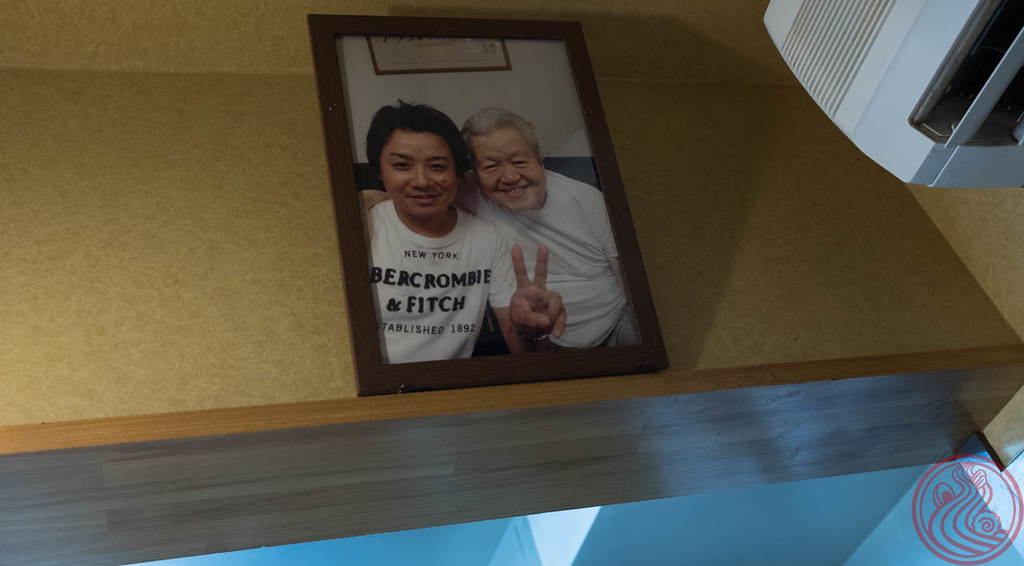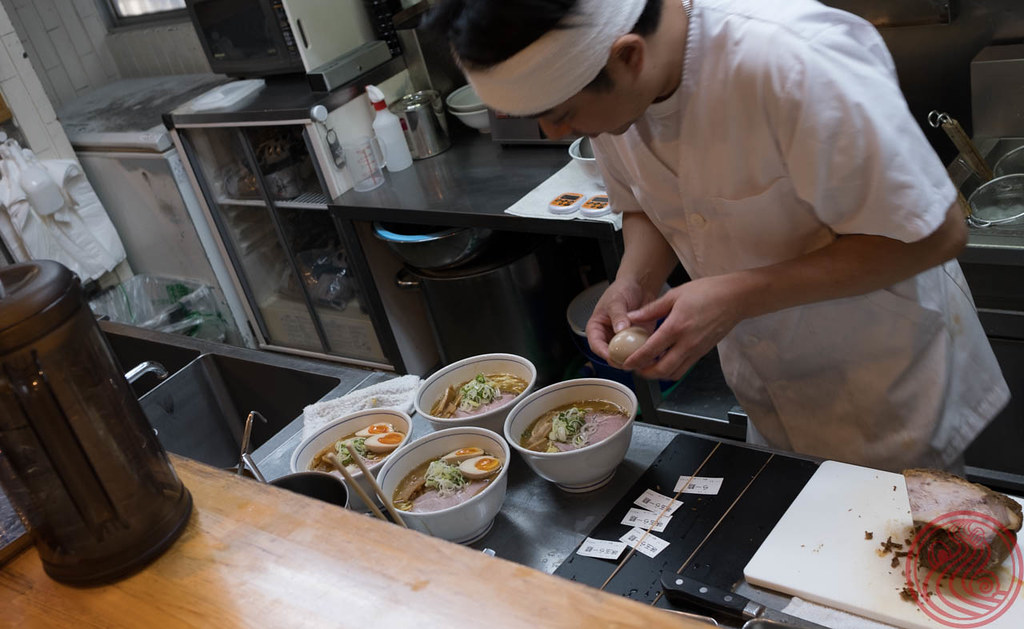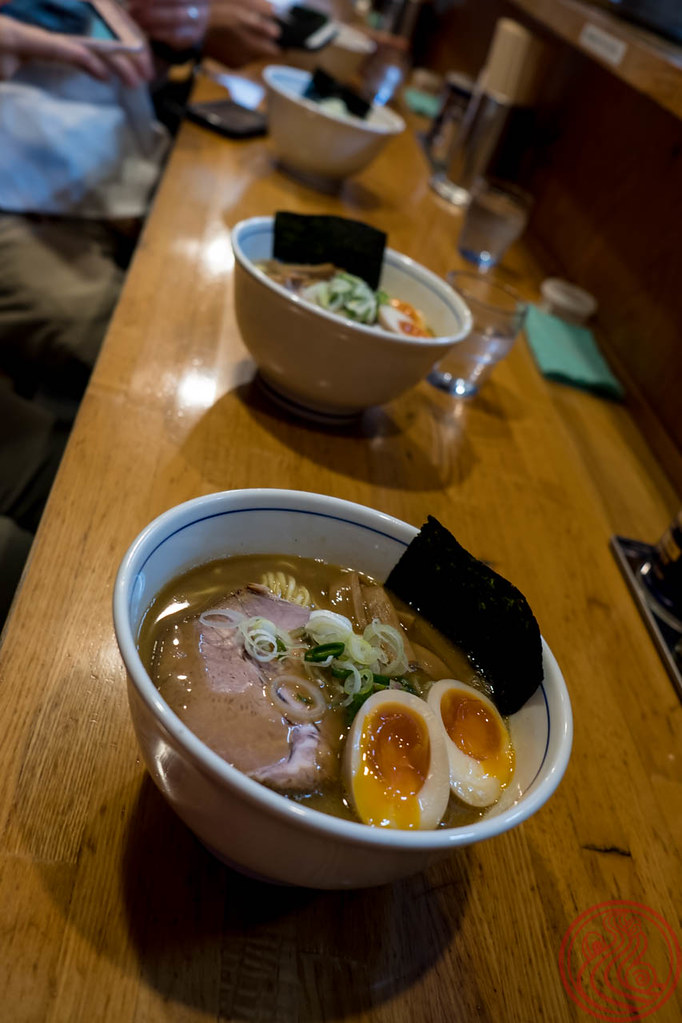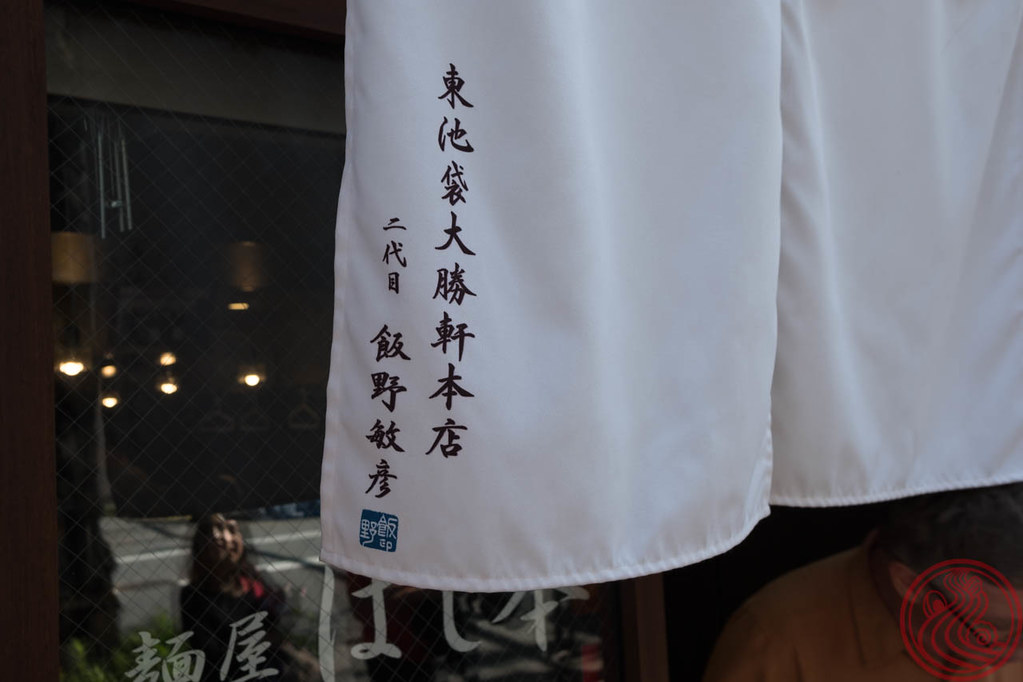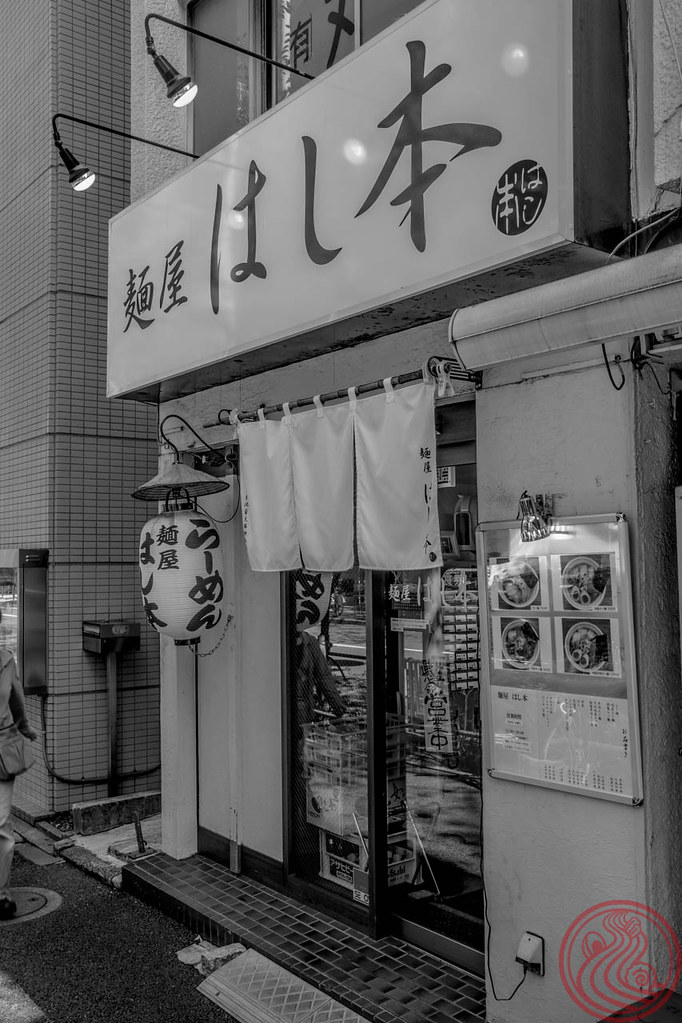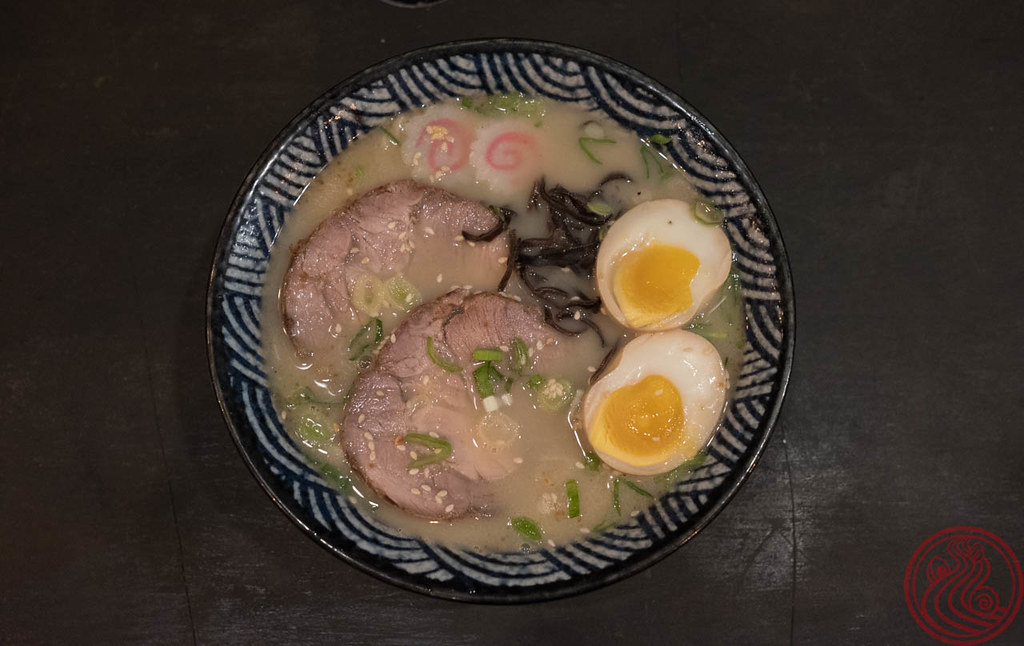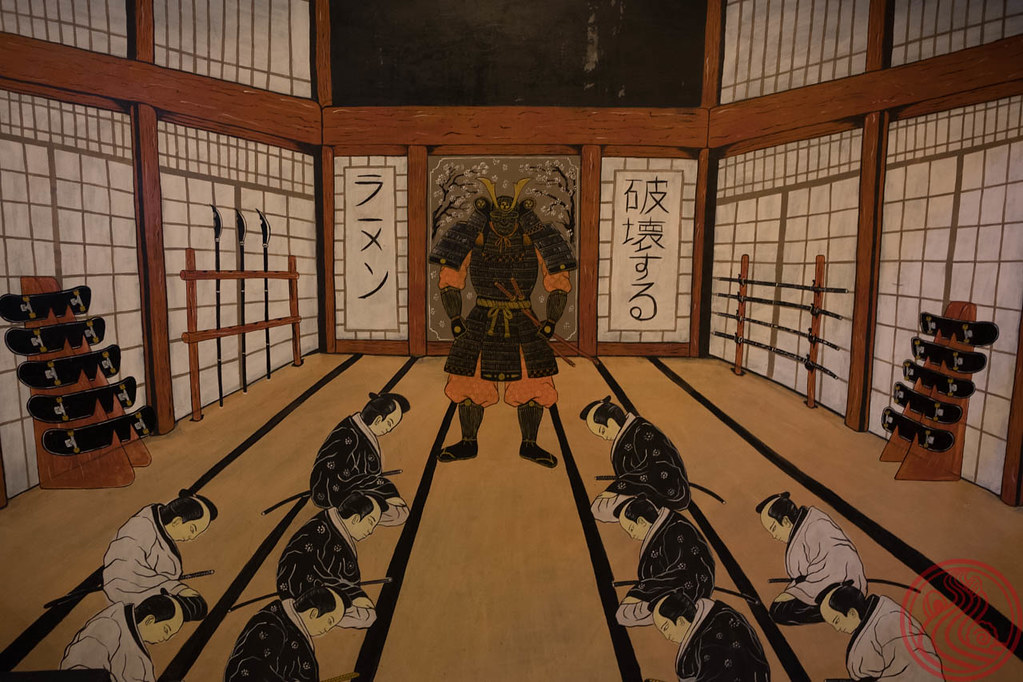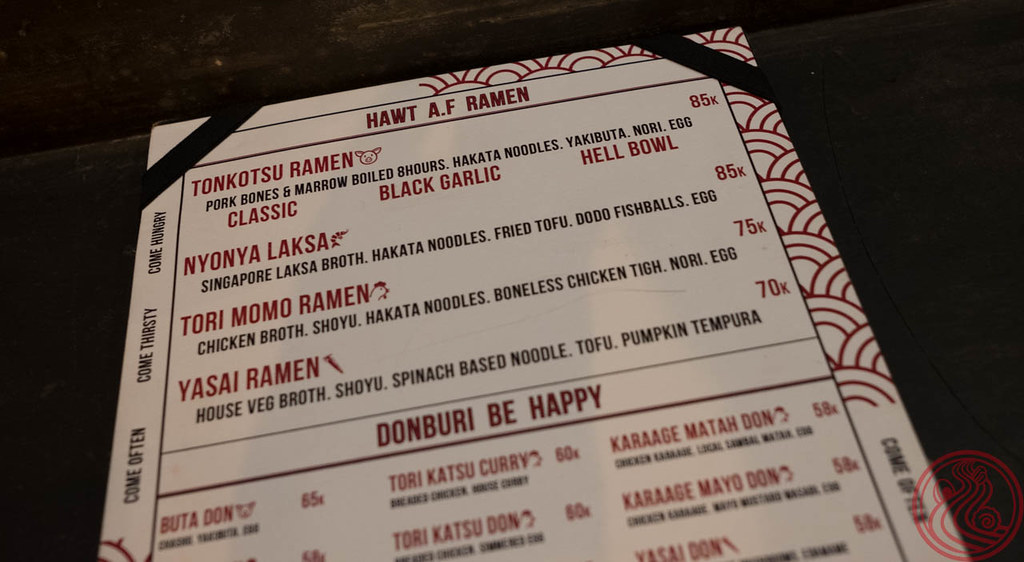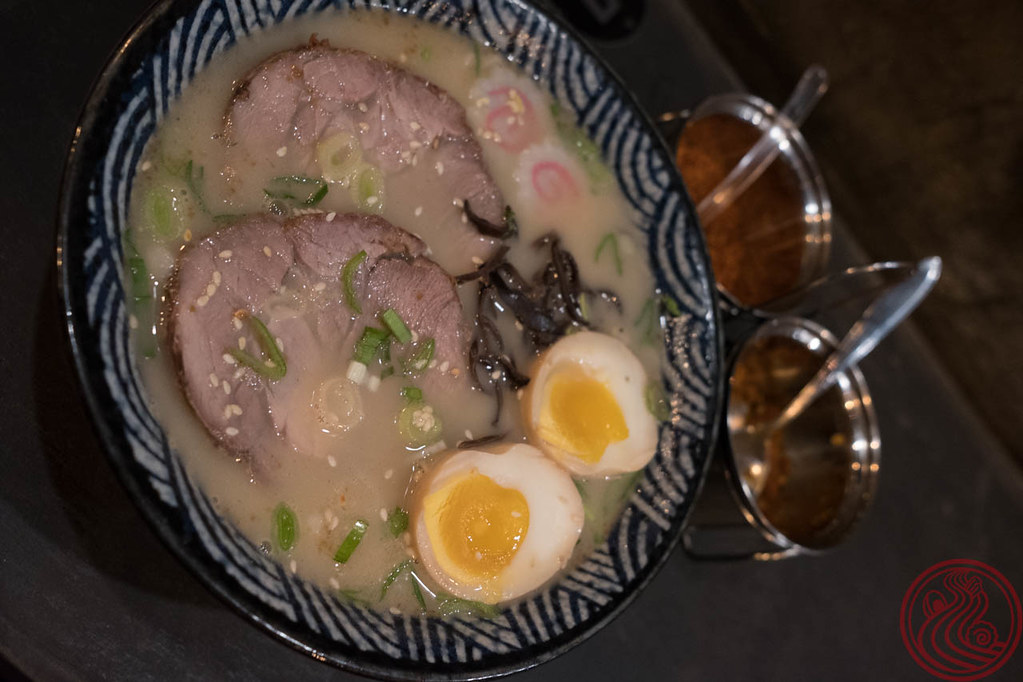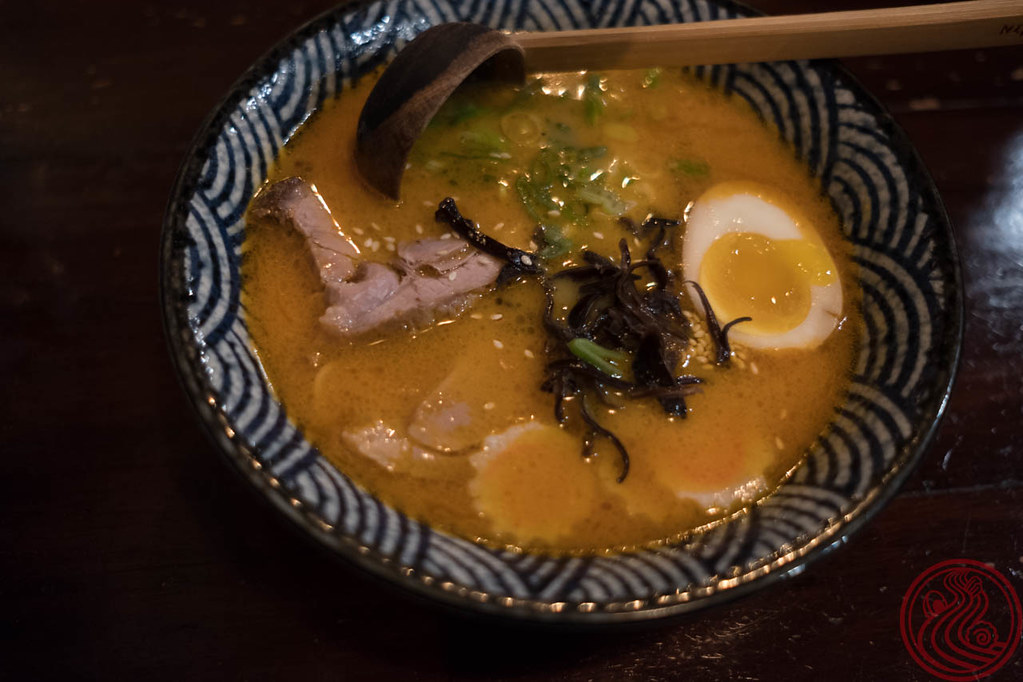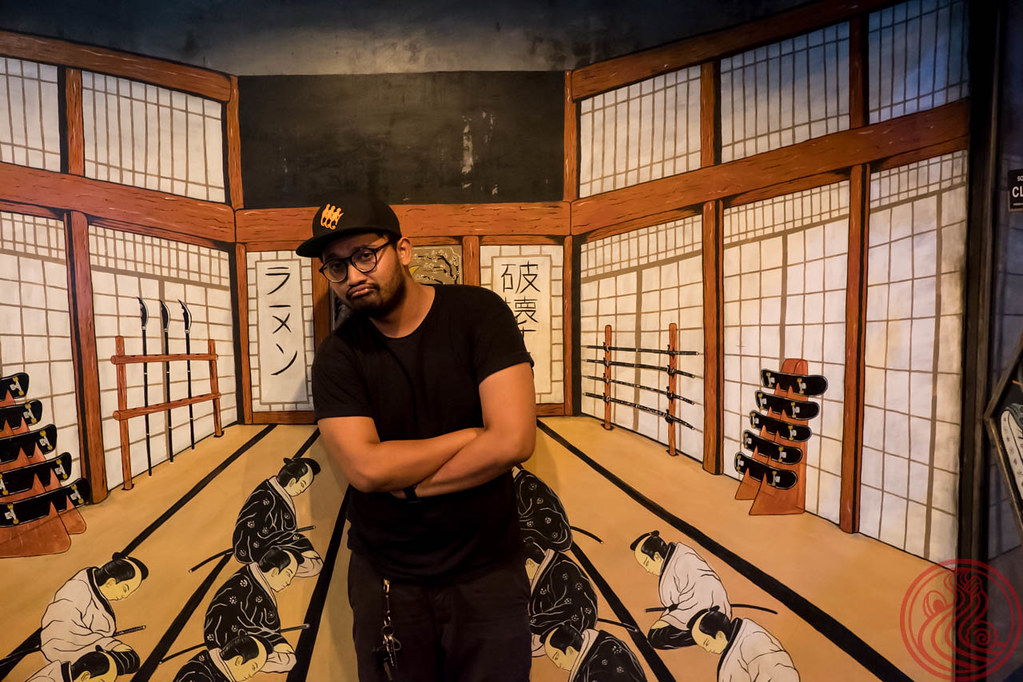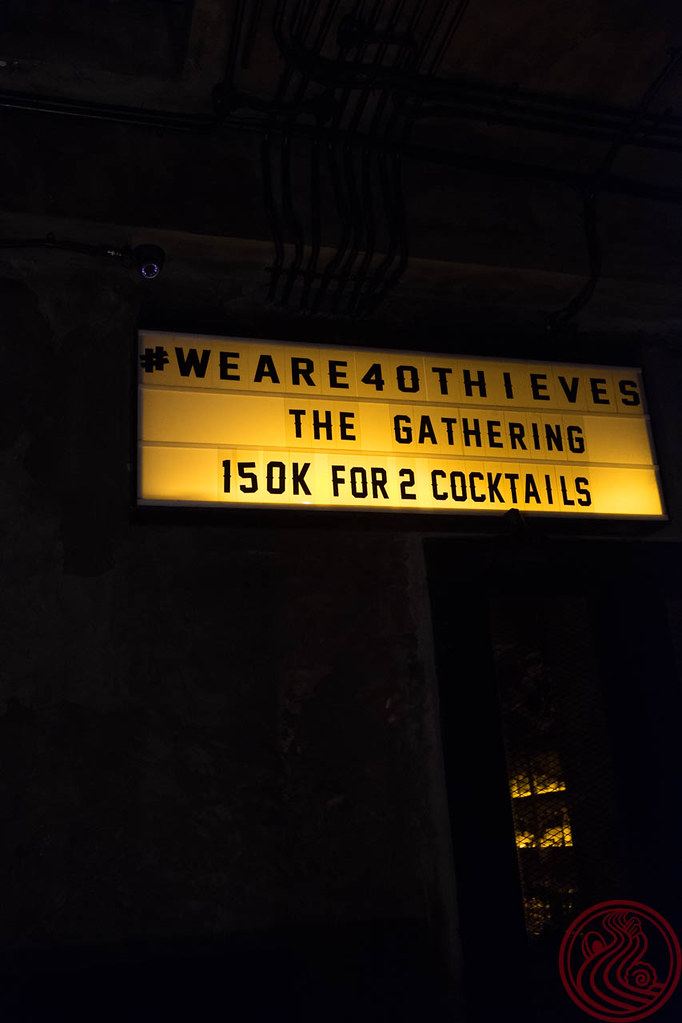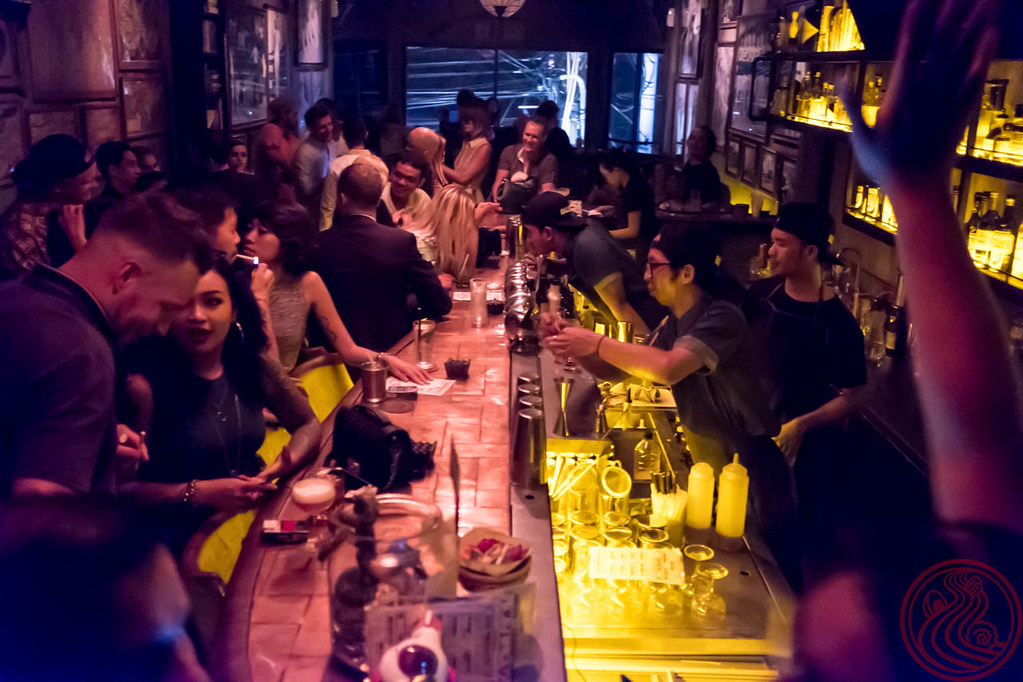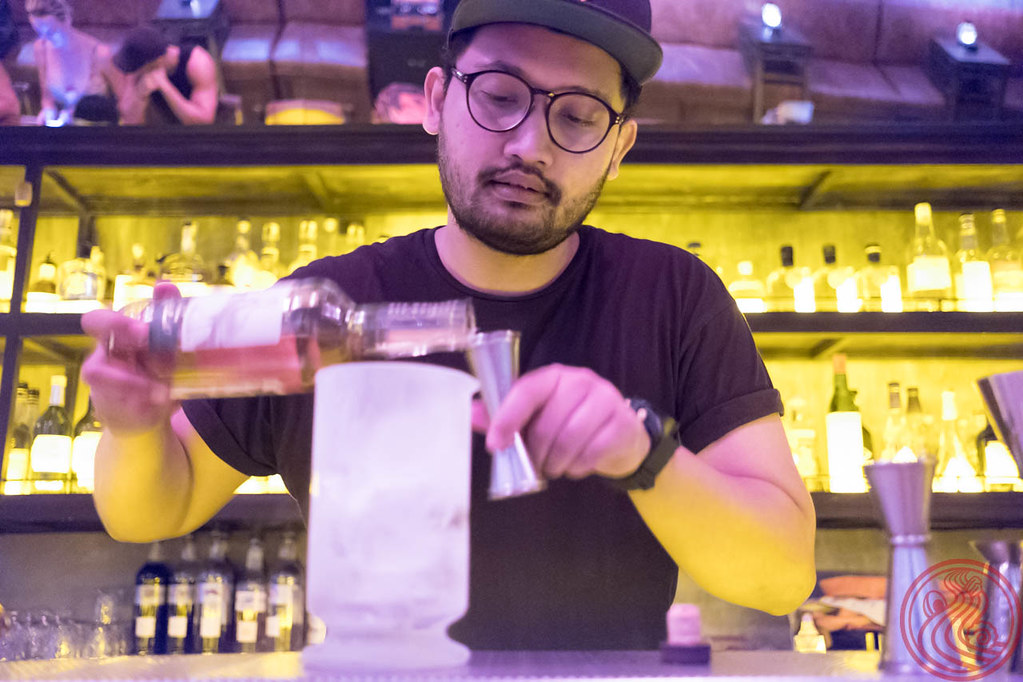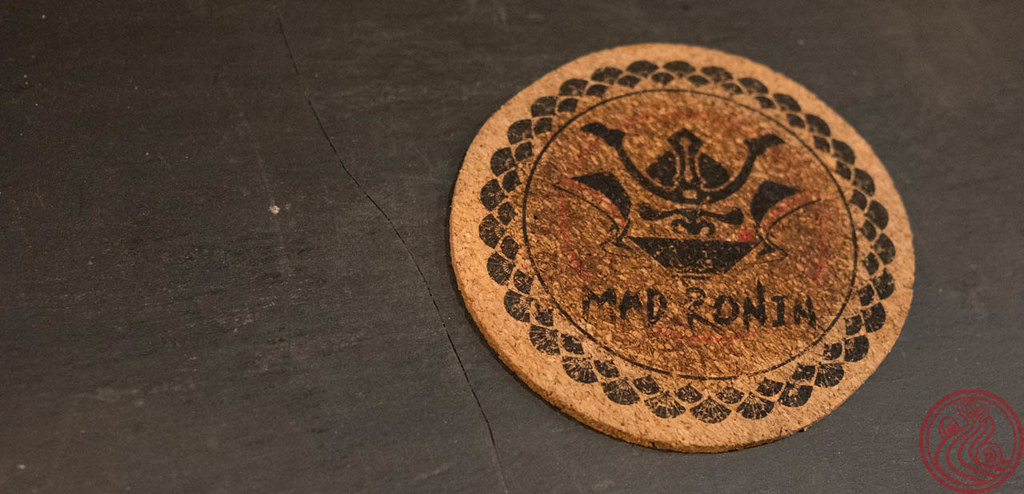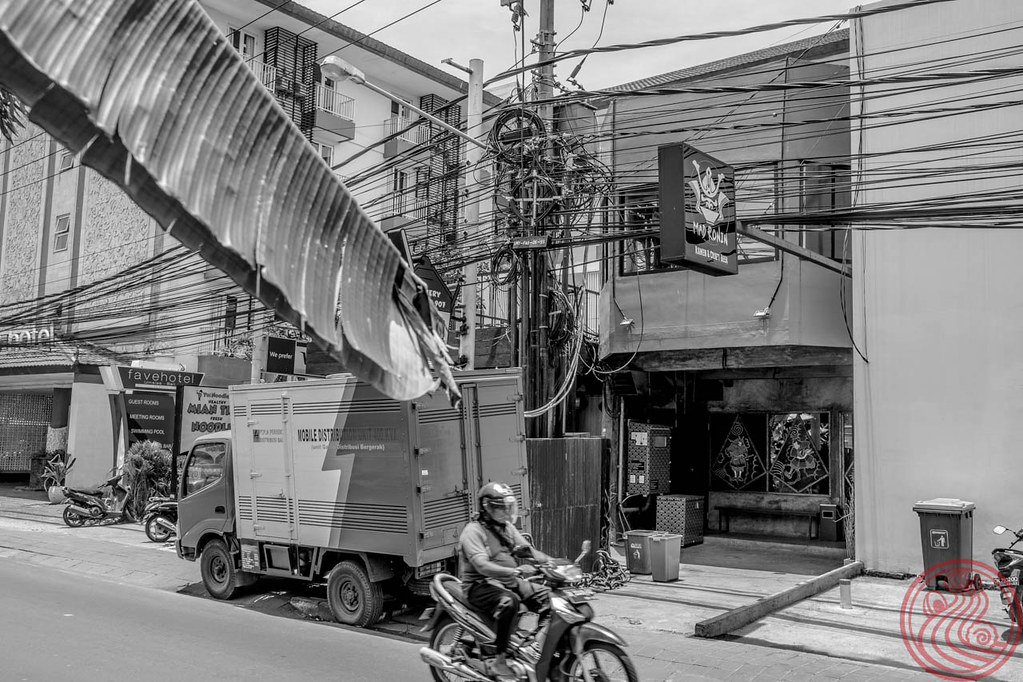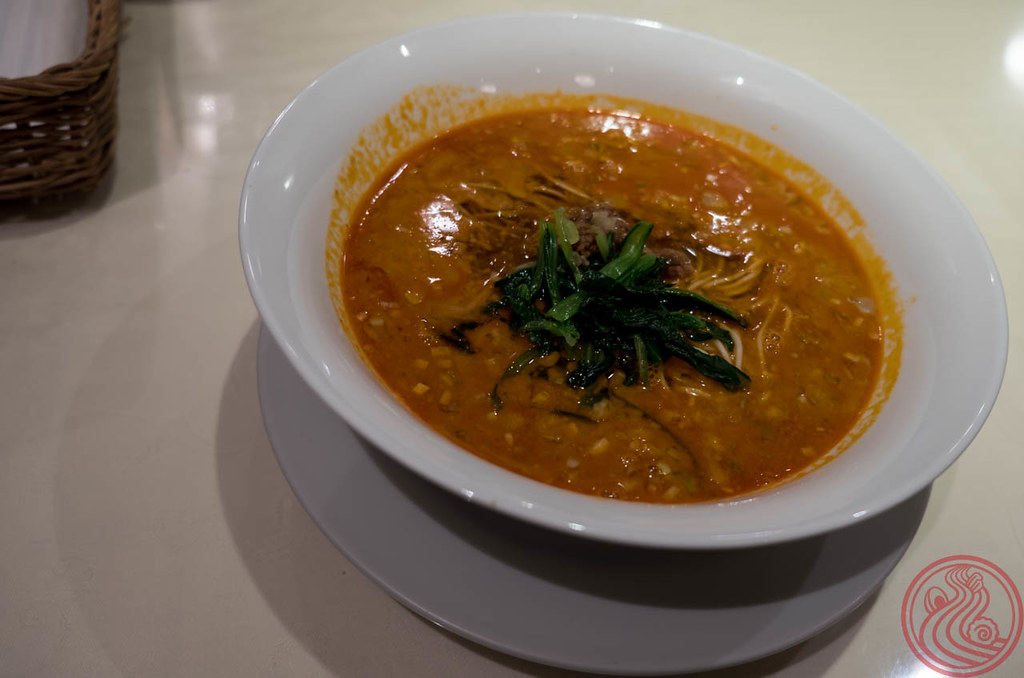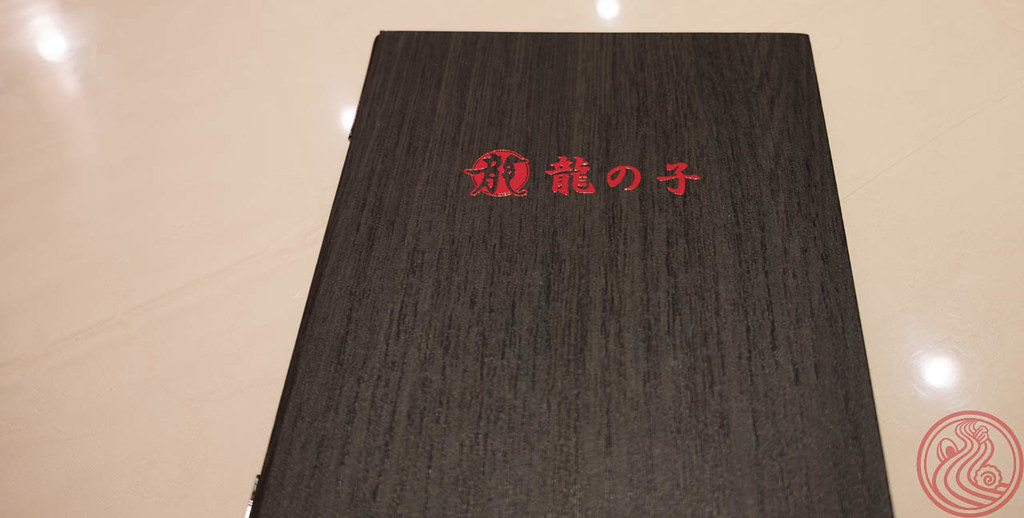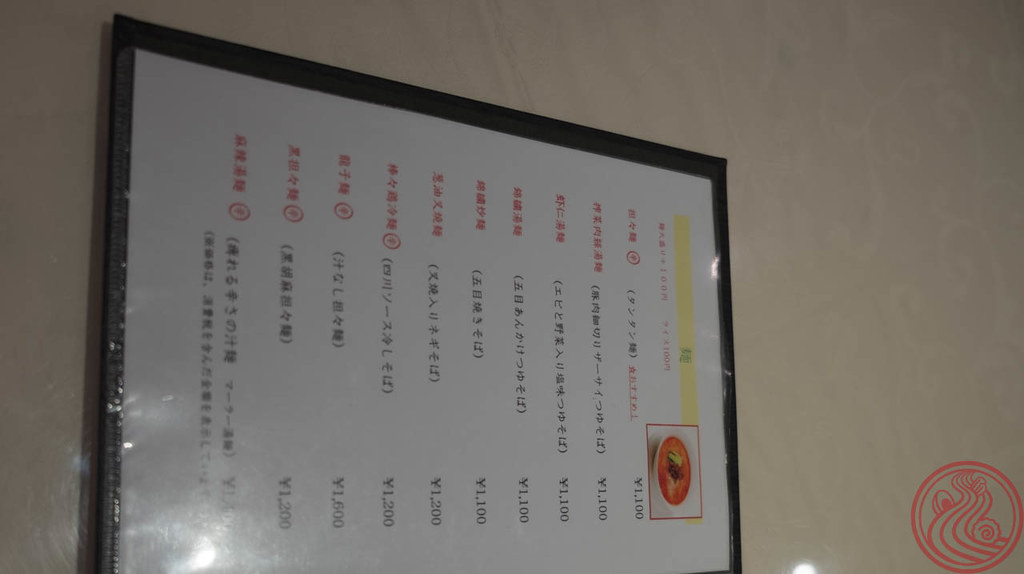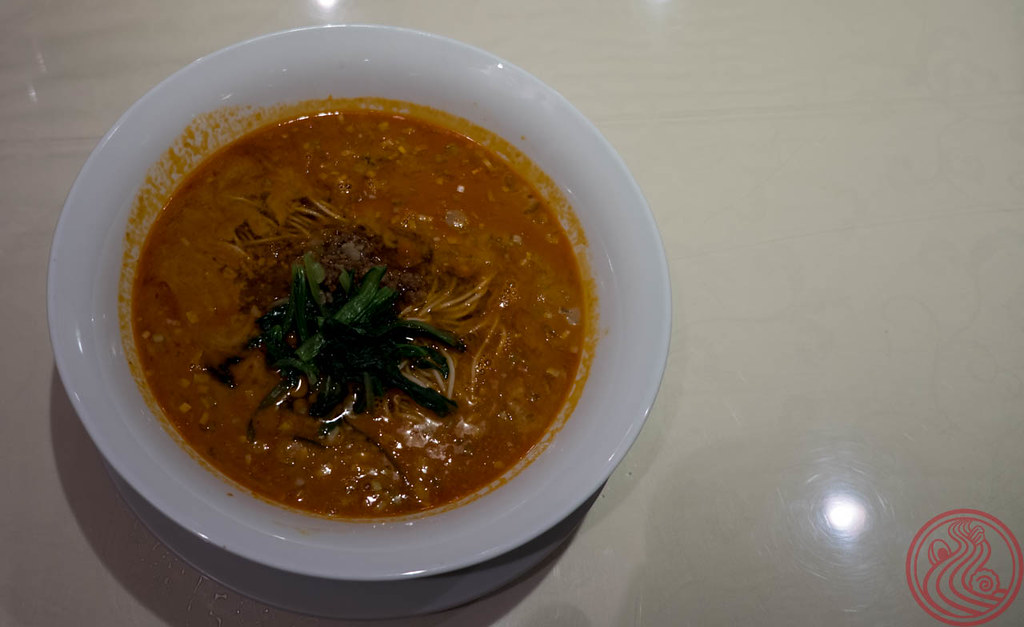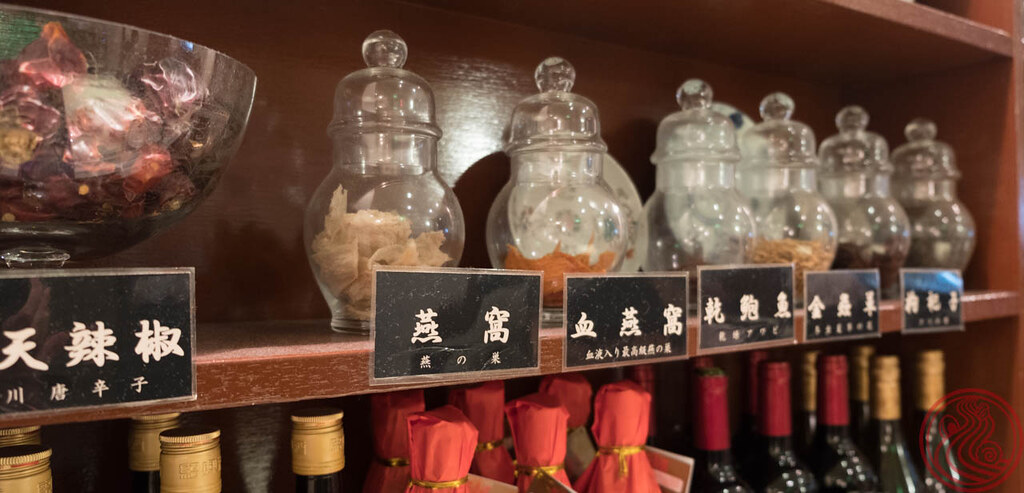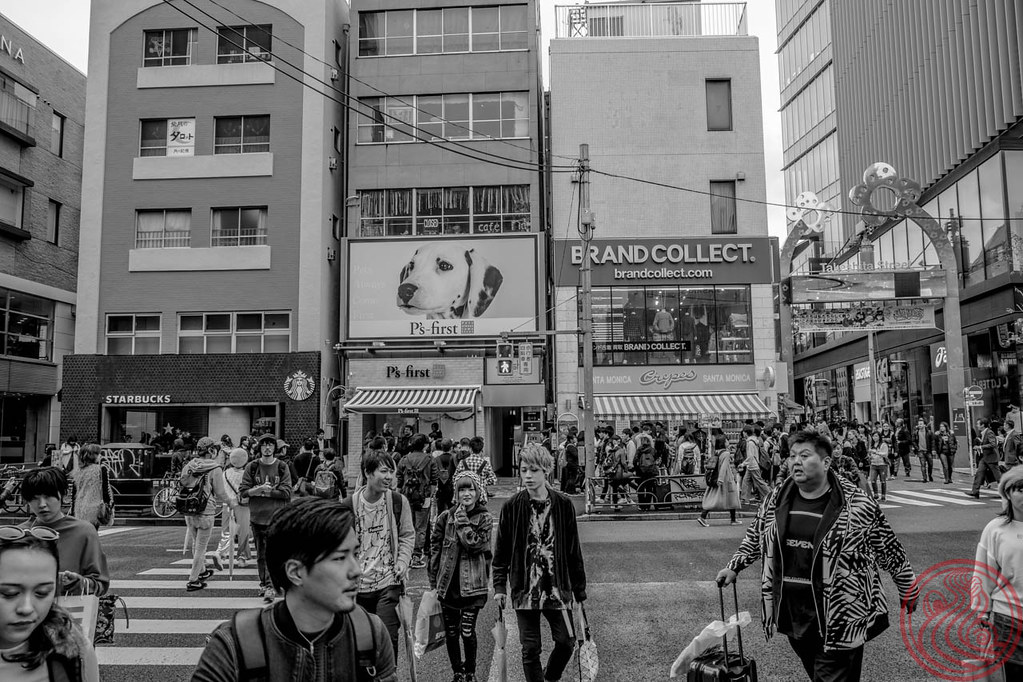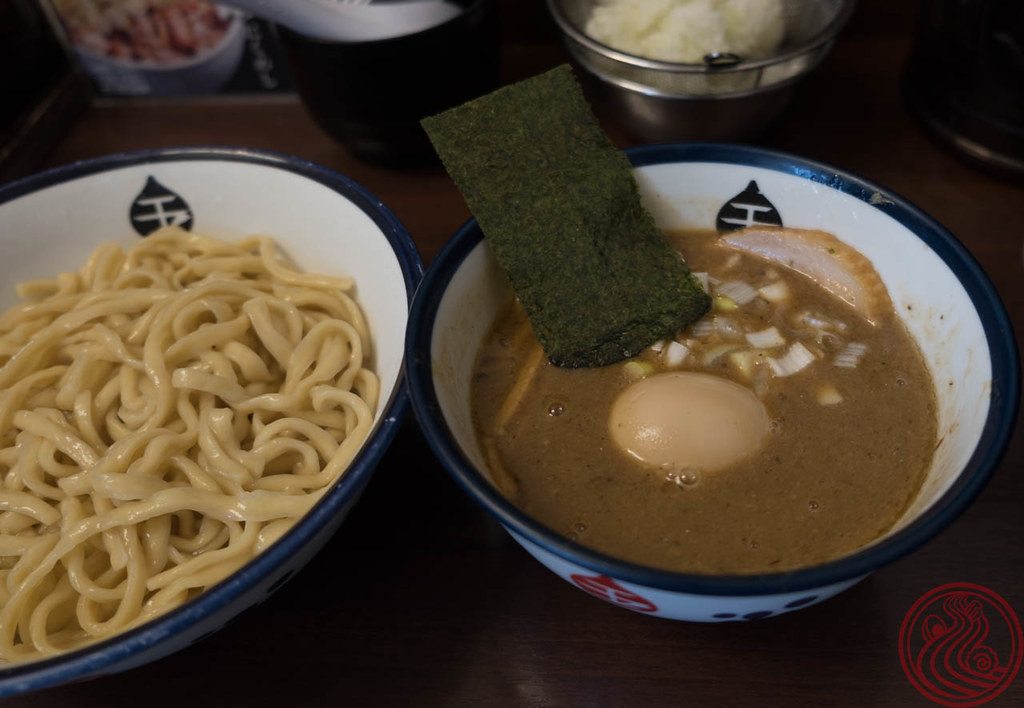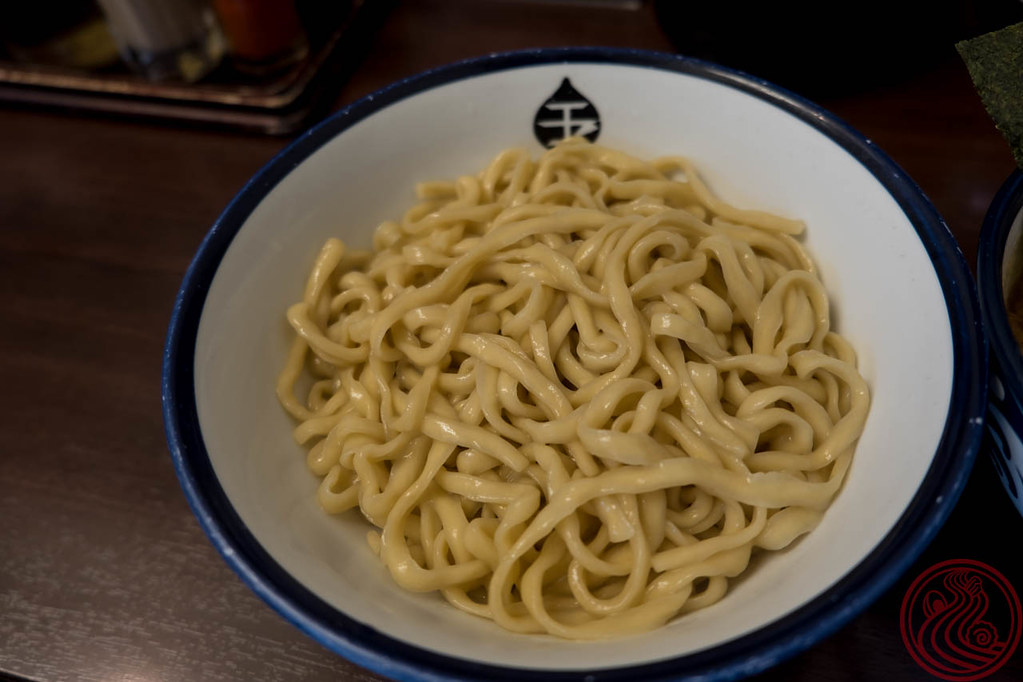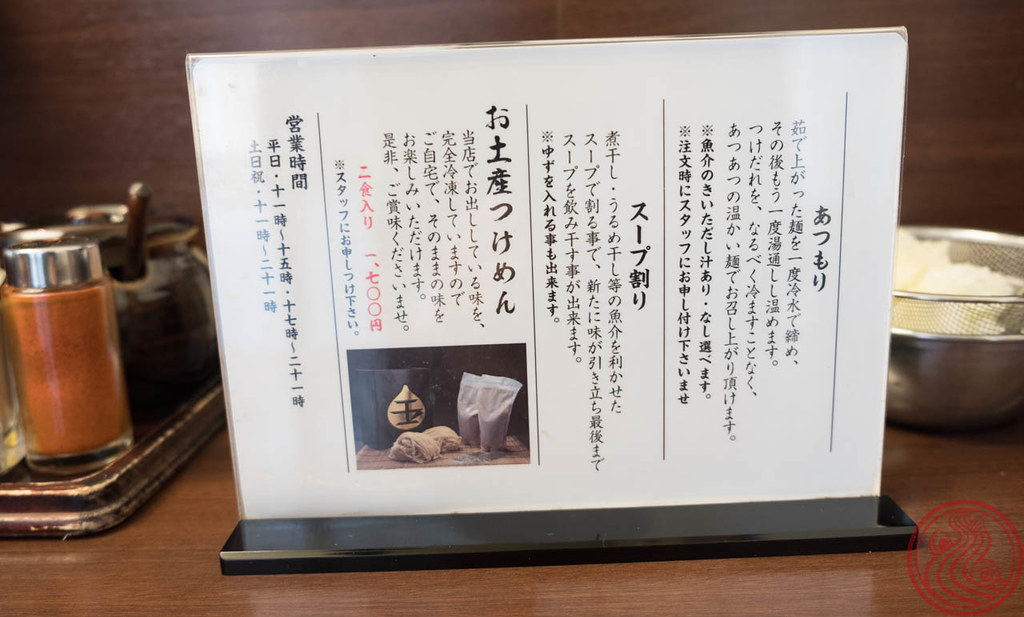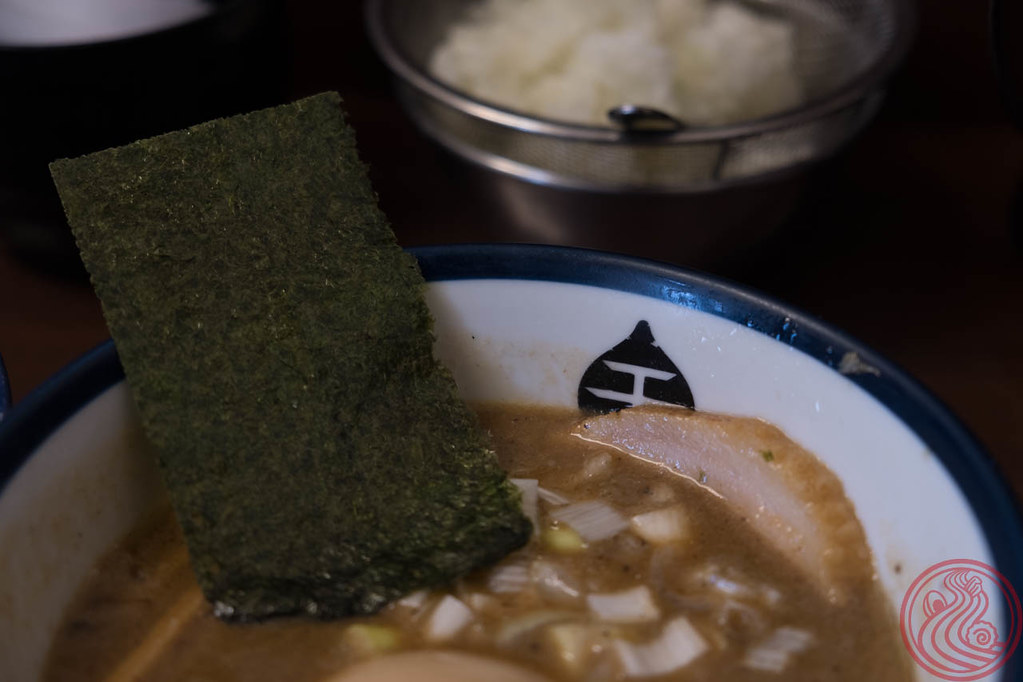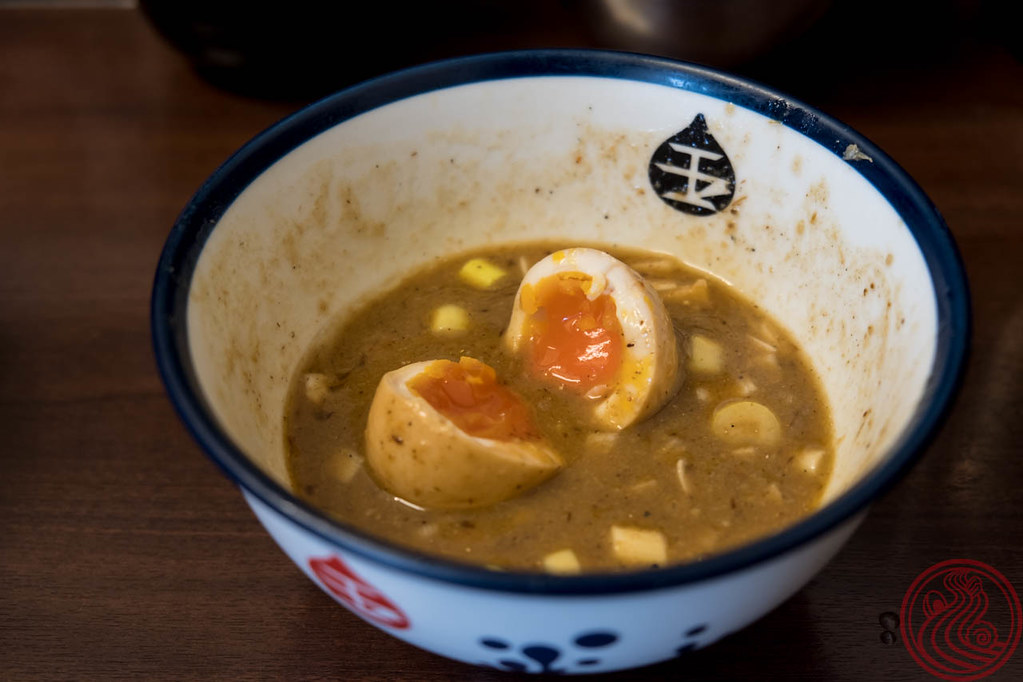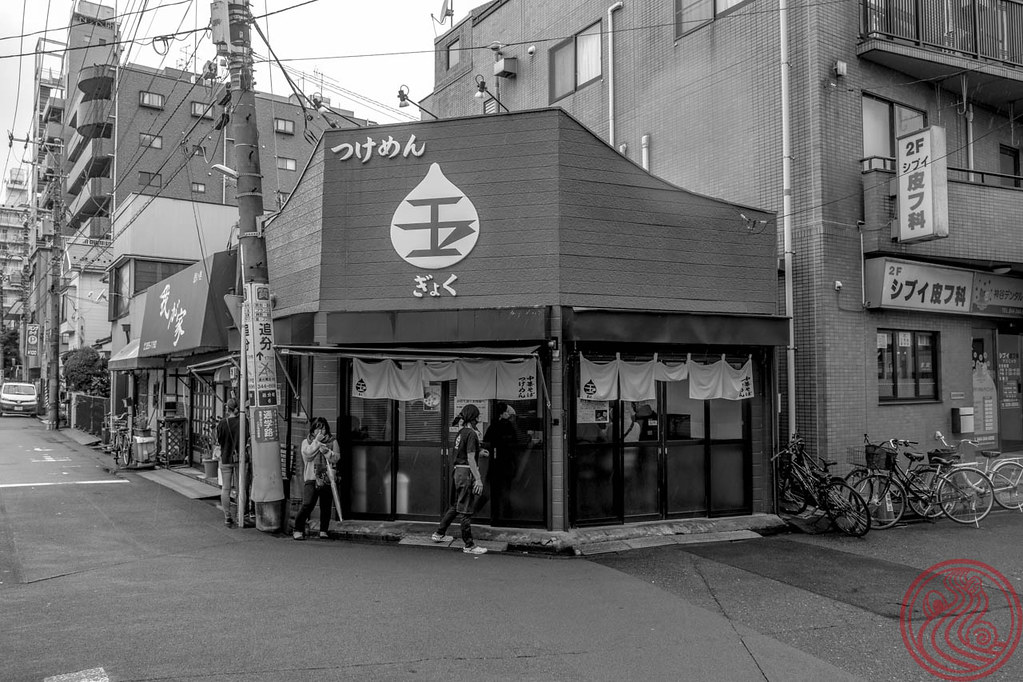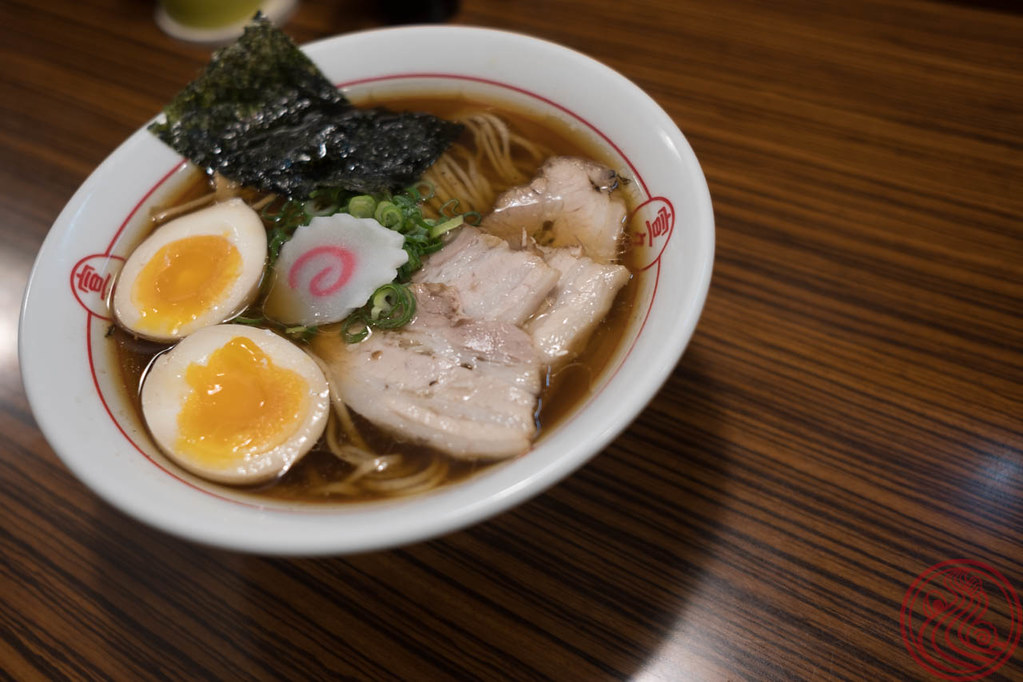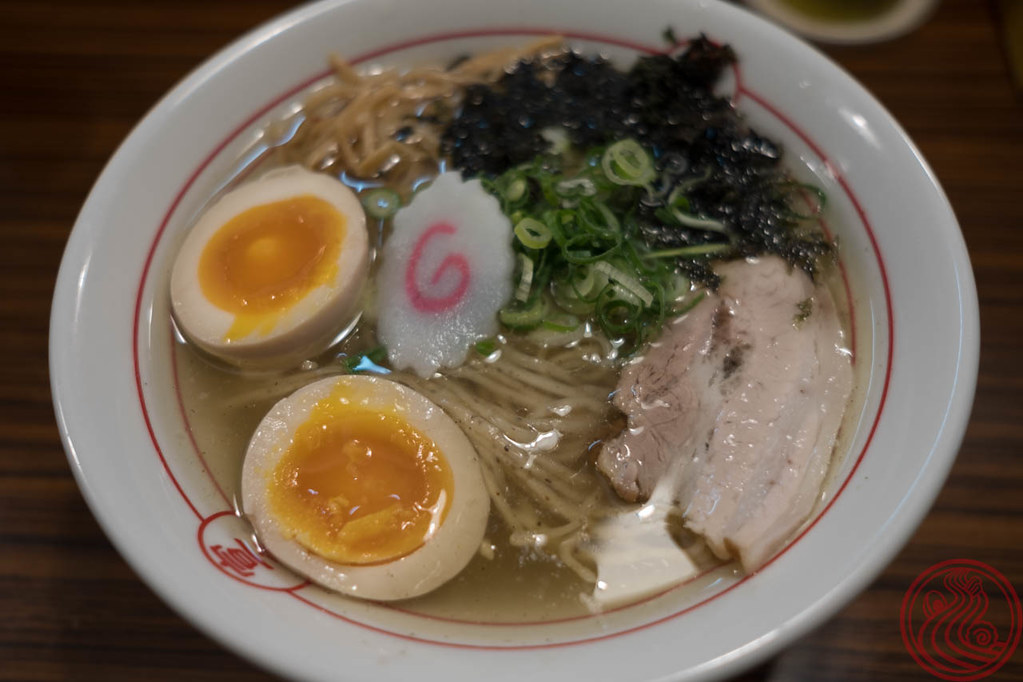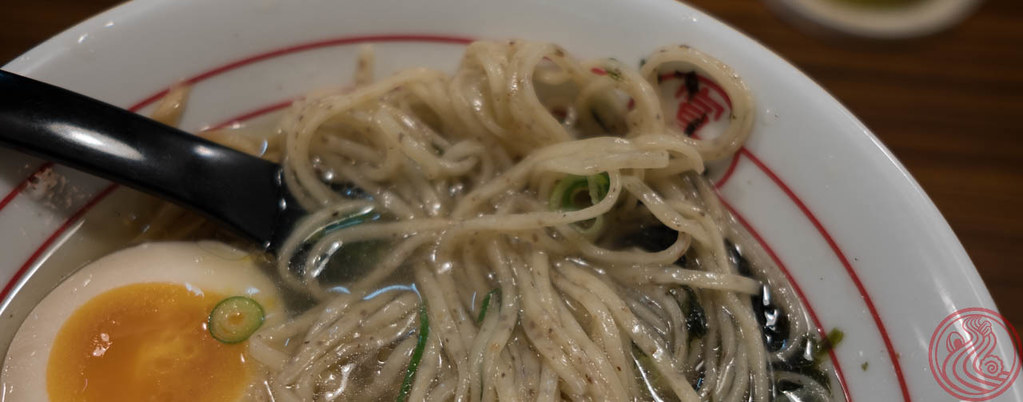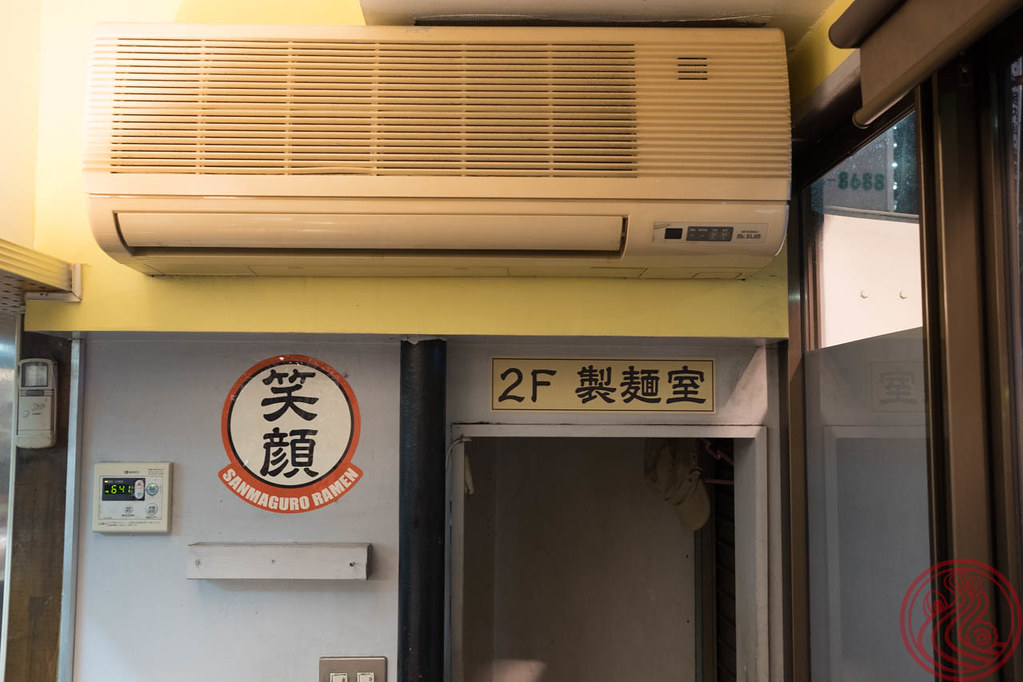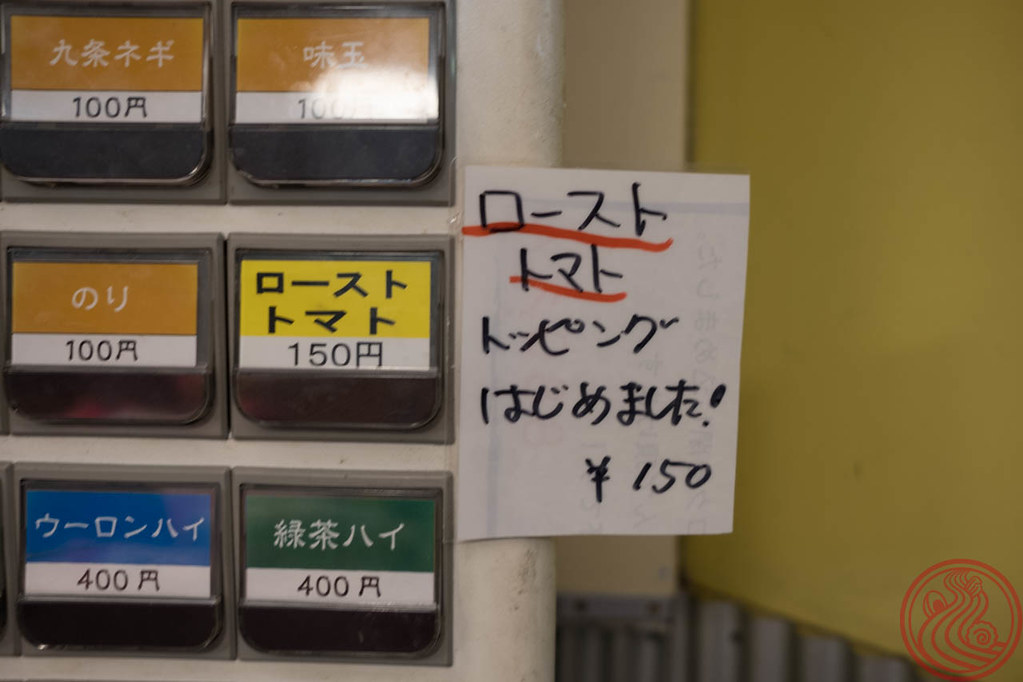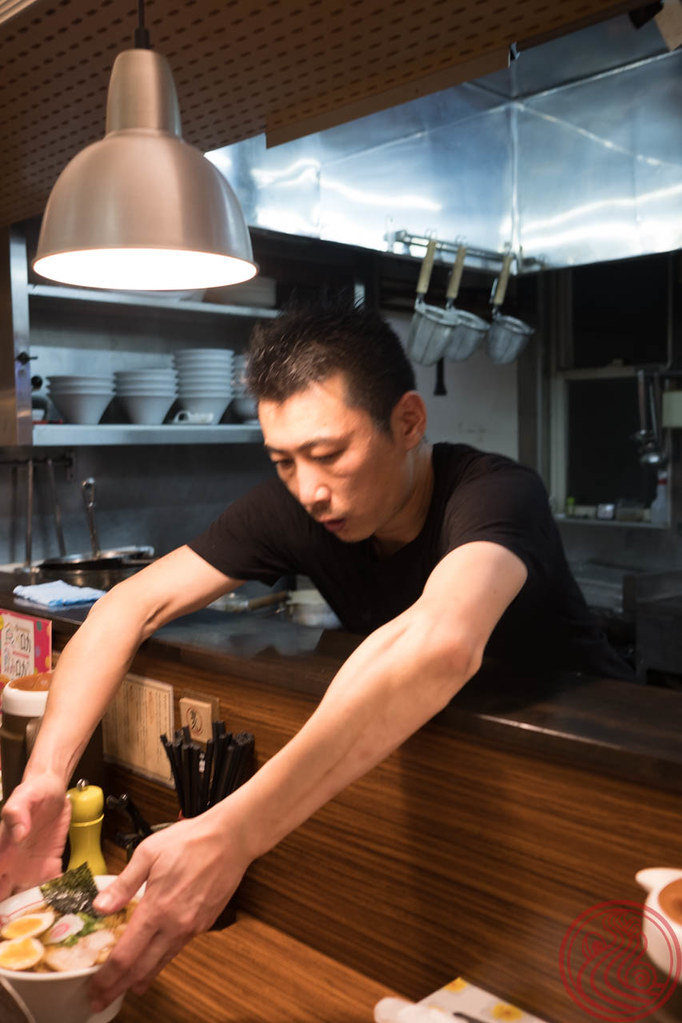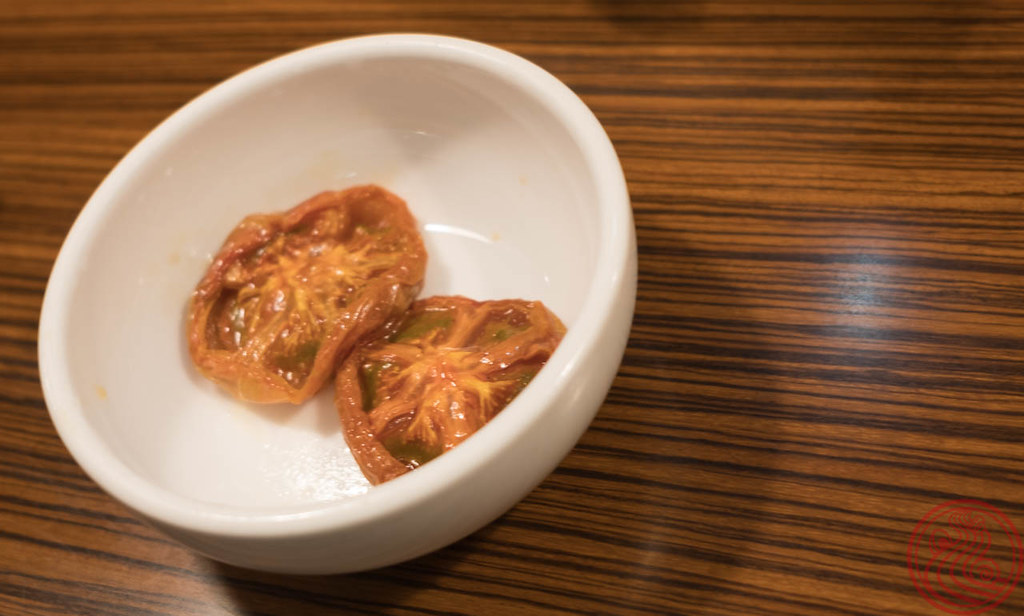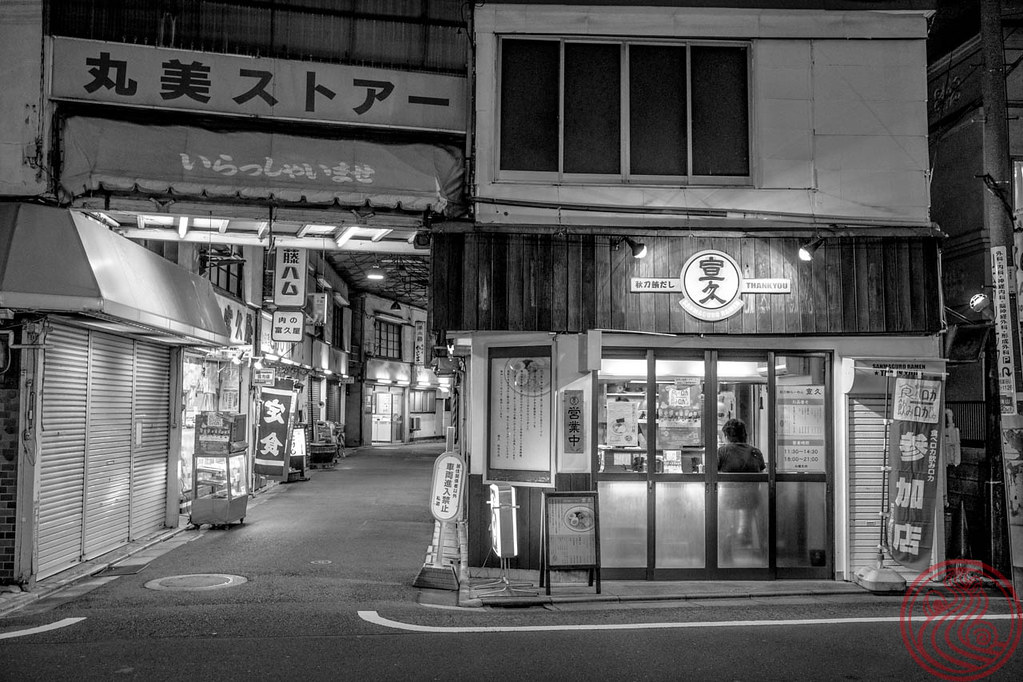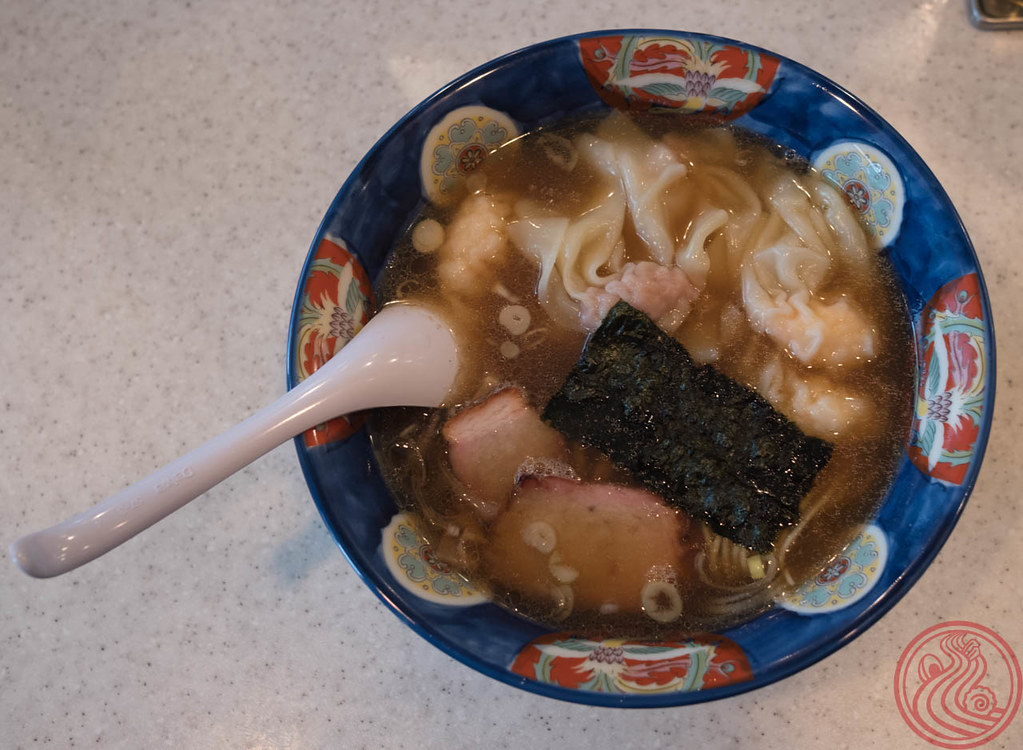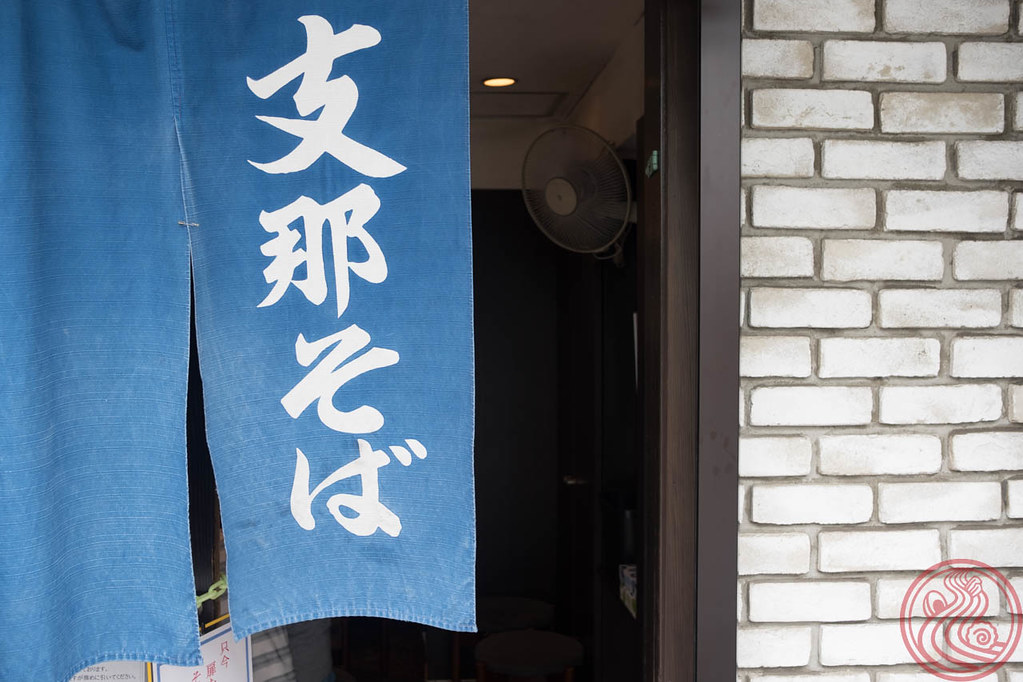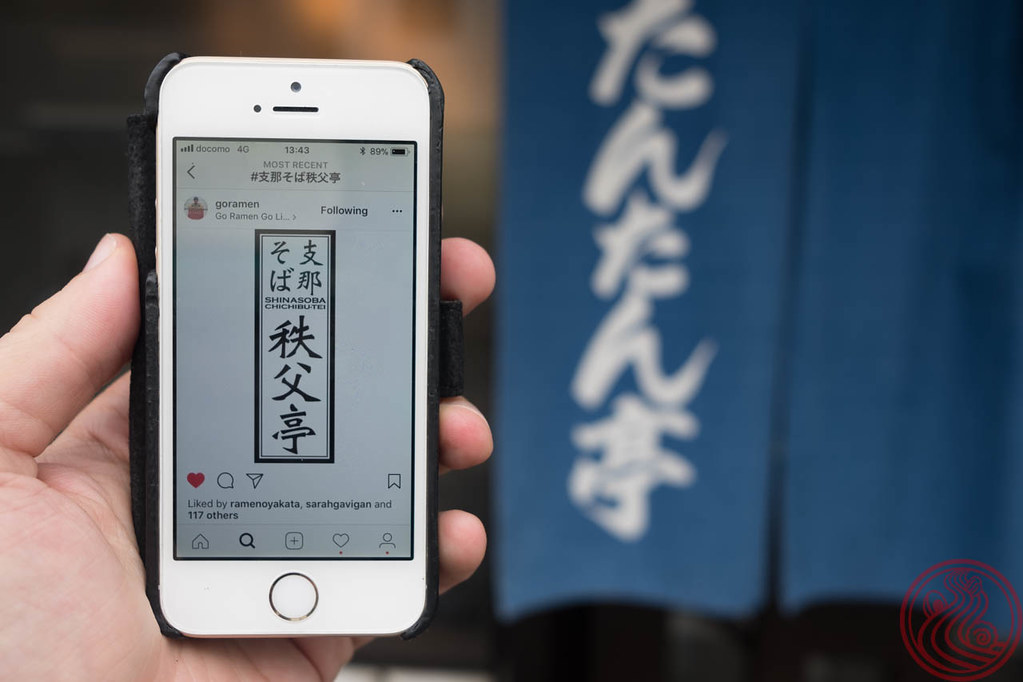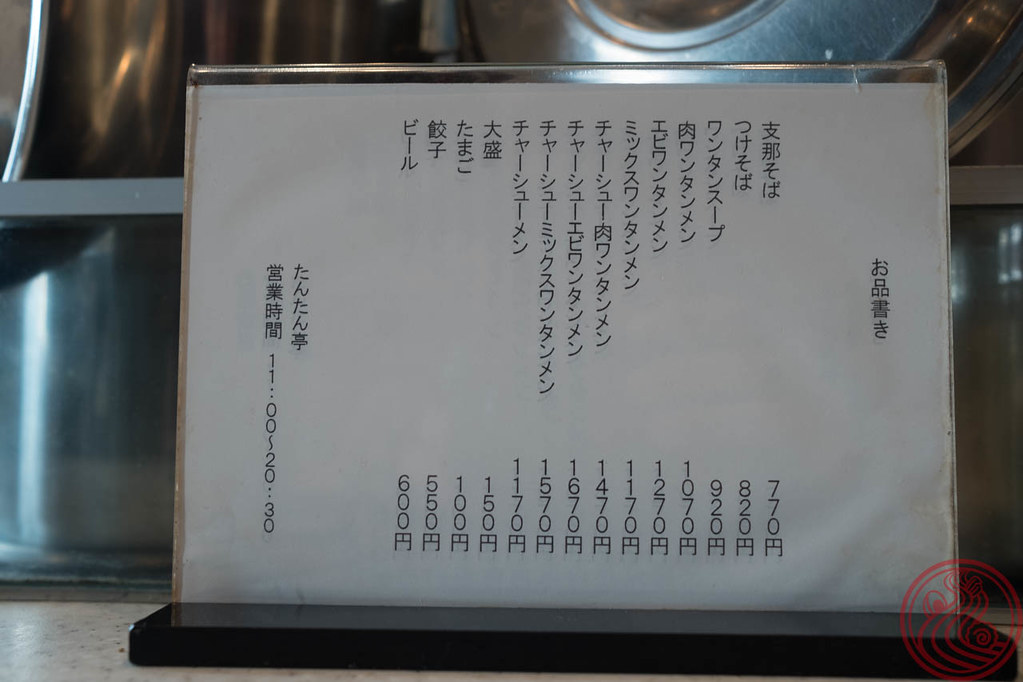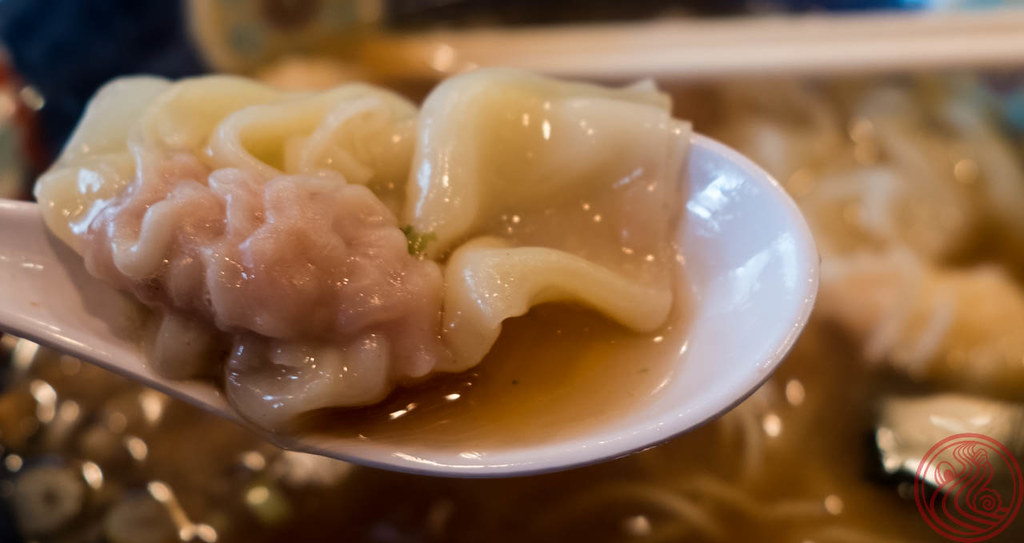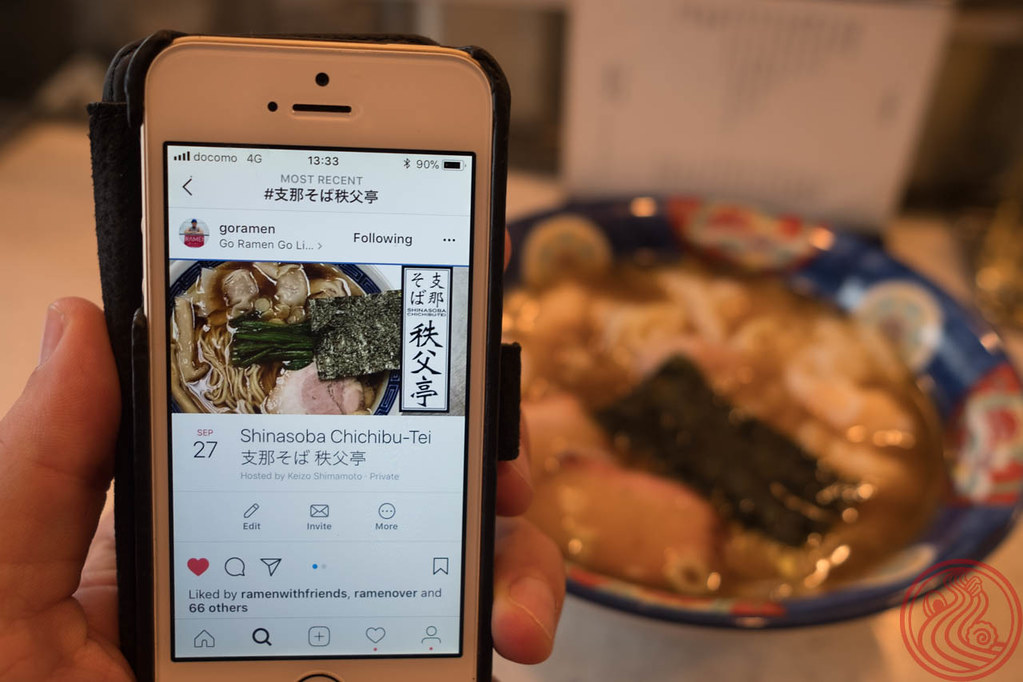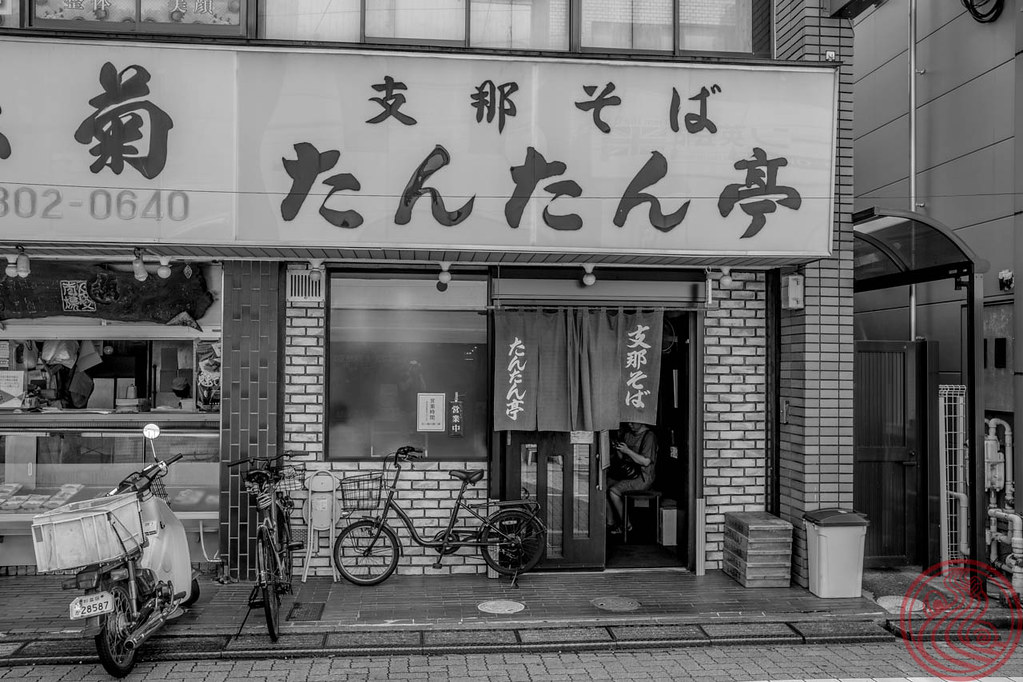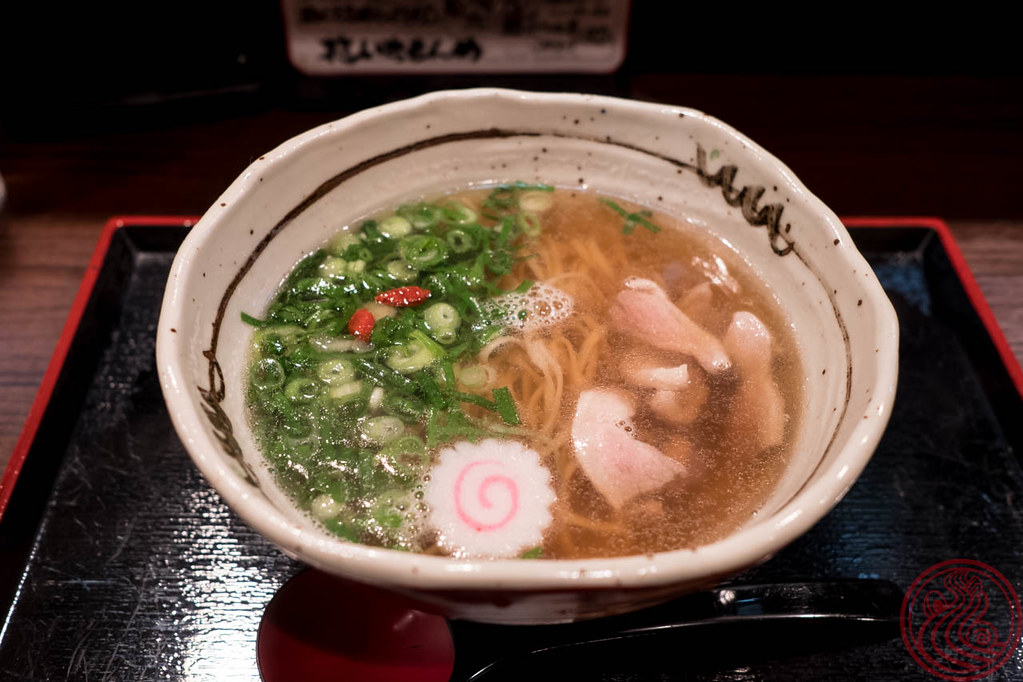
My non-Tokyo adventures take me to Hiroshima once or twice a year, and I always try to take advantage of the situation. Hiroshima ramen is most often associated with spicy tsukemen, and in recent years soupless tantanmen. So when someone told me about a duck soup spot in the red light district, I made a point to check it out.
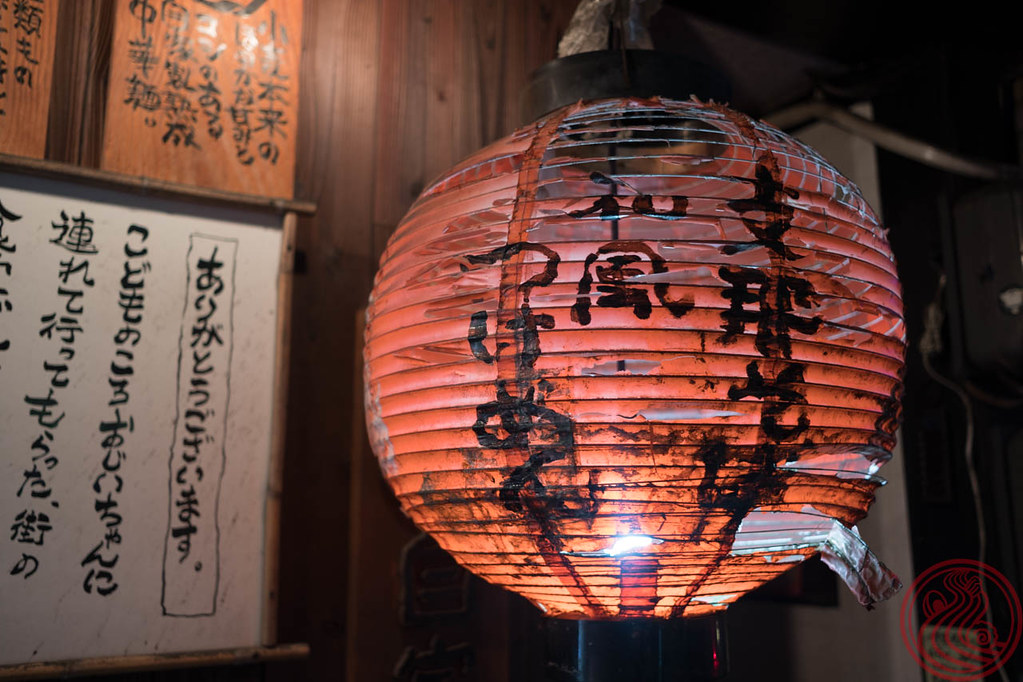
Hanaichimonme opens at 9:00pm, and stays open until around 4:00am. This is in the heart of Hiroshima's red light district, rife with brothels, bars, and cheap eats. It's a must hit area (for the food!) if you are in town.
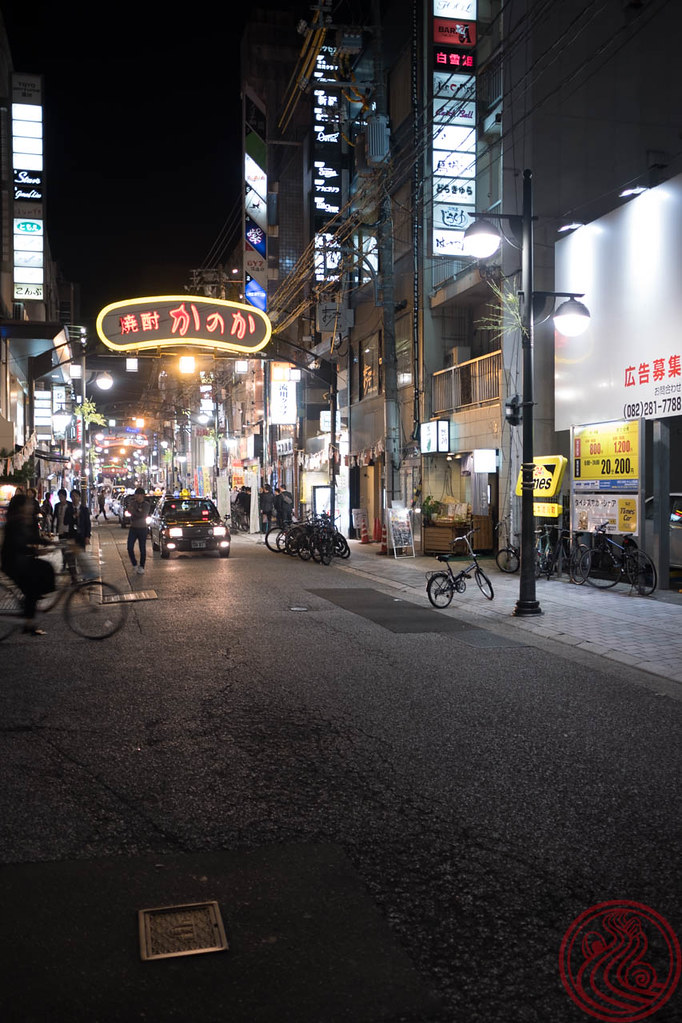
There is a bit of confusion upon entering the shop. It will most likely be packed, with no line outside. I waited for 10 minutes before someone informed me that the waiting area is actually upstairs. Head up, sit down, and peruse the menu.
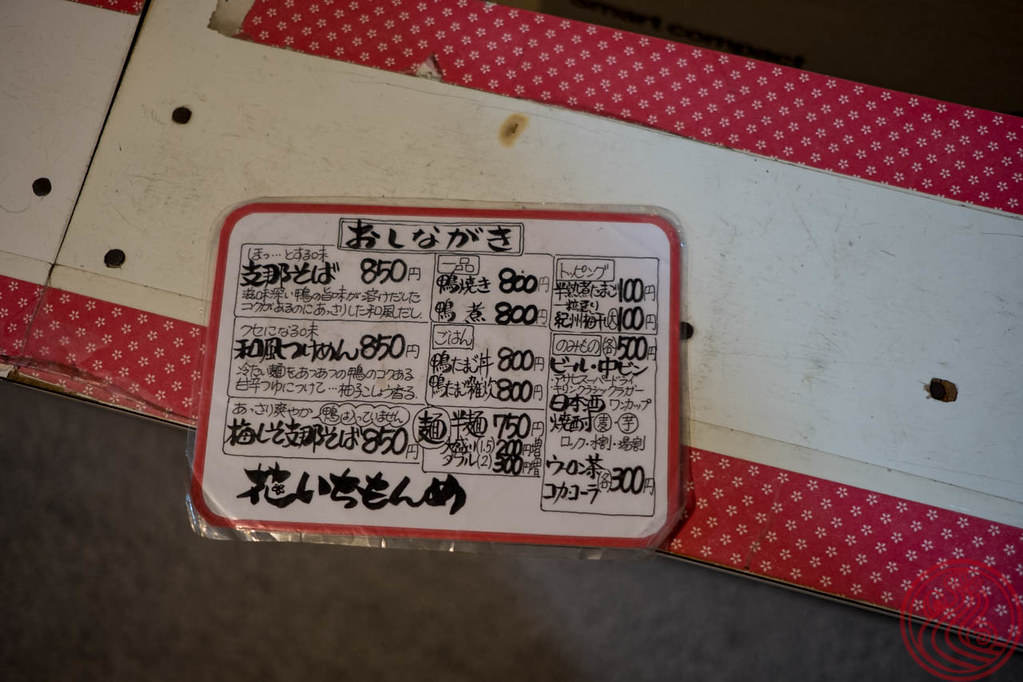
志奈そば and 和風つけめん are the two to choose from. I quickly mailed my friend, the one who told me about the place, but he didn't see the message in time. The upper left, 志奈そば, would have to do.

Legit. This one is light and full of refreshing flavors. It's not the sous vide duck breast that Tokyo seems to love at the moment, but you can tell that a lot went into this one. That said, there are some side dishes of fried or stewed duck available if the sparse meat topping in this bowl isn't enough.
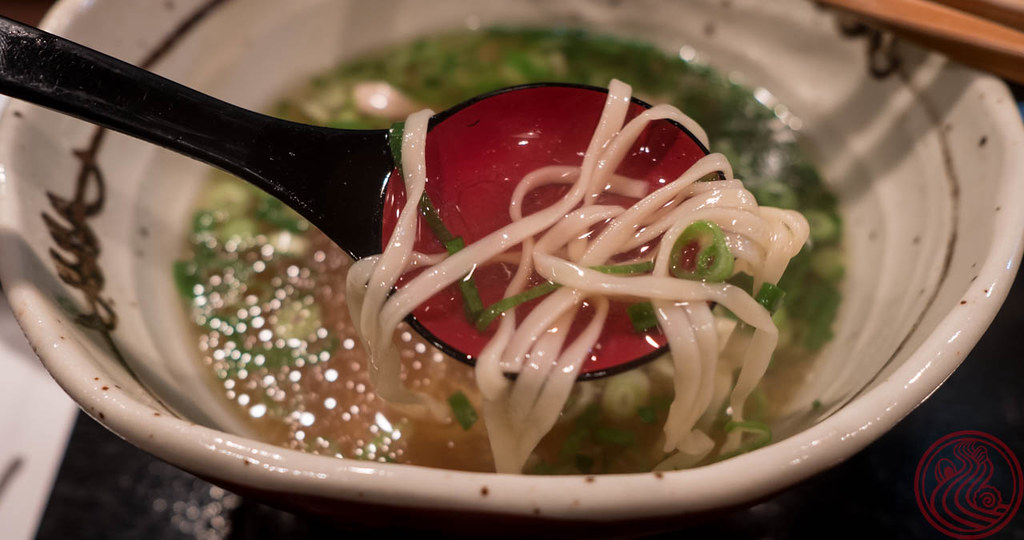
Beautiful, flat noodles.
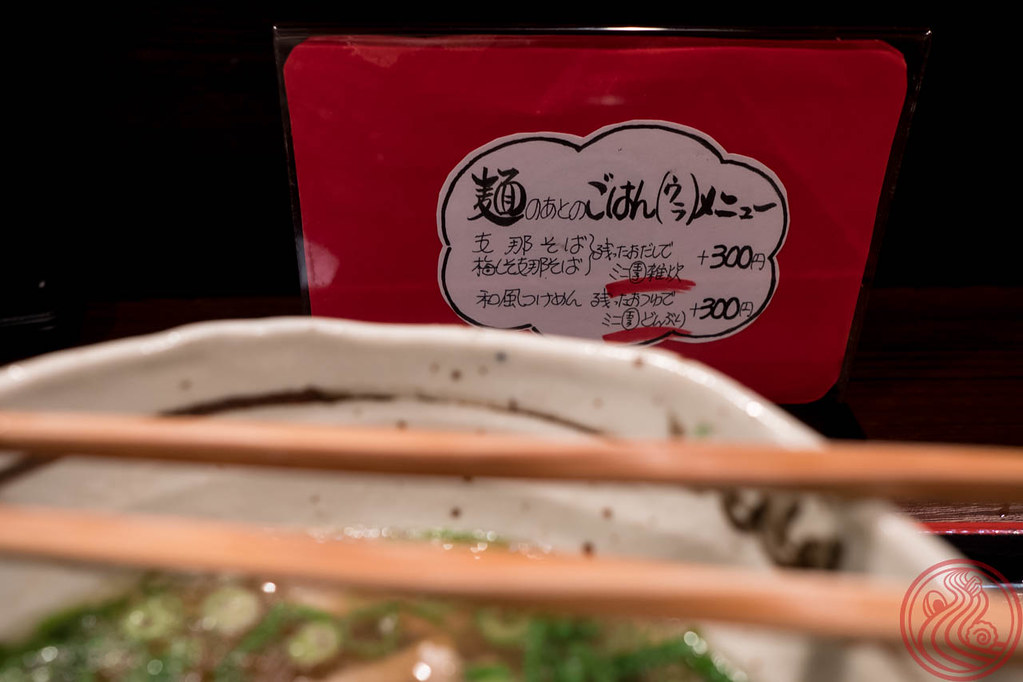
On the back of the menu is their ウラ, or hidden options. The ramen gets a mini egg dish and the tsukemen gets a mini rice bowl. I was stuffed, and didn't want to waste any money on something I couldn't eat.
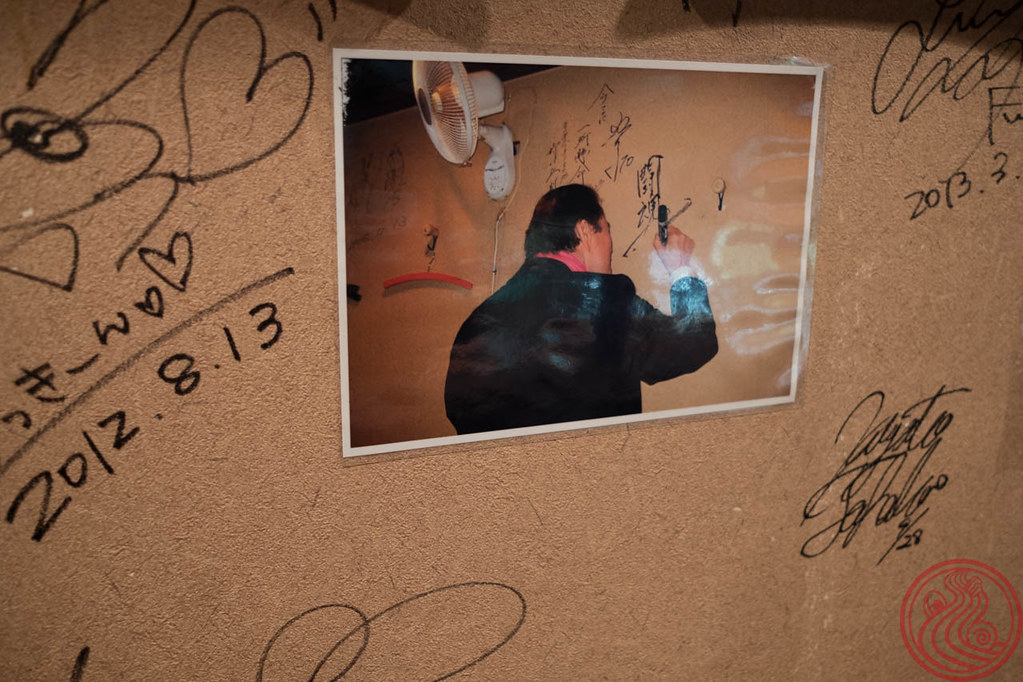
Hey, that guy!
By the way, my friend responded the next day and said that the tsukemen is the one to get. Guess I'll be back!
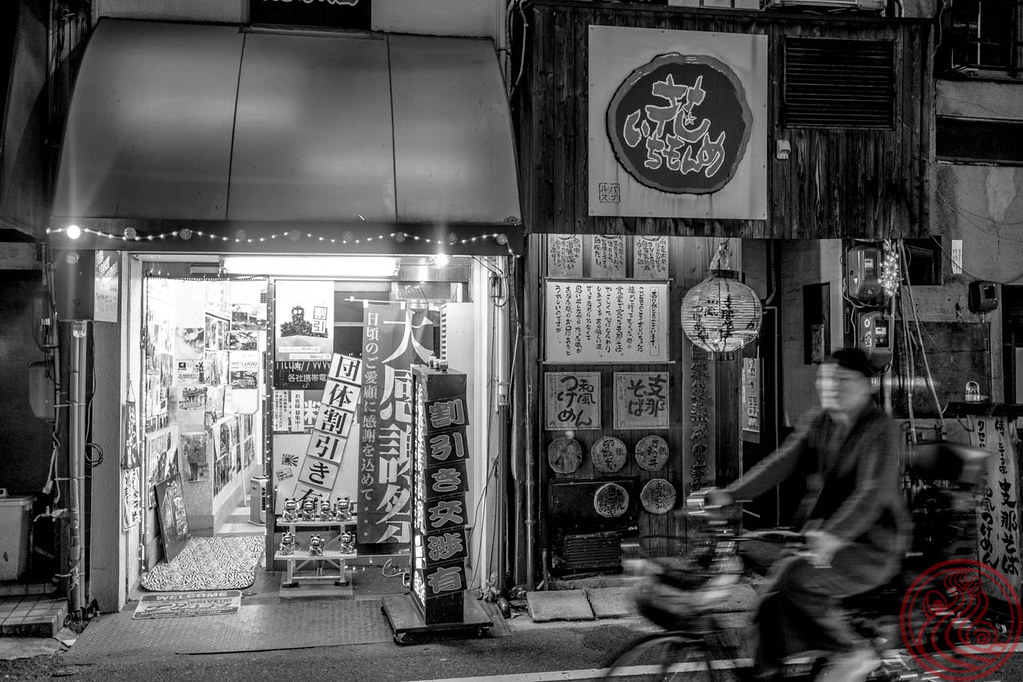
広島県広島市中区流川町4-3
Hiroshima-ken, Hiroshima-shi, Chuo-ku, Nagarekawacho 4-3
20 minute walk from HIroshima Station
Open 9:00pm-4:00am
Closed Sundays

